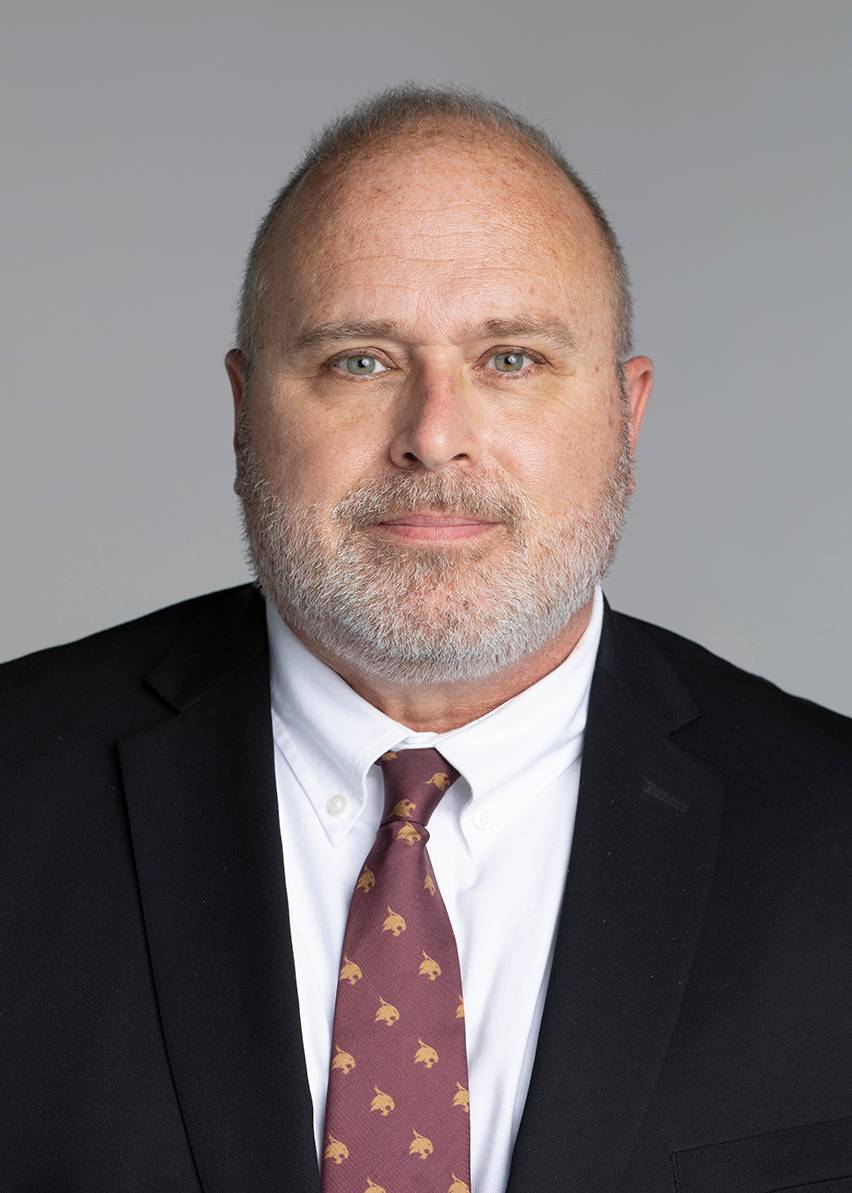Meet Matthew Carmichael the new chief of police for Texas State UPD
Julie Cooper | February 1, 2022

Following a national search, Matthew Carmichael is the new director and chief of the University Police Department. Before joining Texas State, Carmichael headed up the University of Oregon Police Department (UOPD) for five years.
A native of California, Carmichael started as a reserve police officer with the police department in Pinole, California, right out of Napa Valley College. He earned a bachelor’s in criminal justice/law enforcement administration from Union Institute & University. Carmichael rose to sergeant at Pinole before joining the police department at the University of California, Davis. He was named chief in 2011.
In Oregon, Carmichael implemented the department’s executive student assistant program focused on employing students from underrepresented communities, and created a student cadet program focused on increasing diversity, equity and inclusion within the ranks. The UOPD also hosted a national conference focusing on serving victims of mass violence.
The chief never thought he would go into law enforcement, saying that as a young man he wanted to be a truck driver. At UPD he oversees 59 staffers, including 36 sworn police officers.
Carmichael, 56, said that two of his four children are contemplating criminal justice careers and one is in the military. He says if you see him walking across campus swiping his phone he might just be playing Pokémon Go.
Q: You started at TXST in January, how’s it going so far?
A: Amazing. I feel like I’ve always been here. I will say there’s a lot of similarity to UC-Davis. I was hooked back at the interview; you know interviews are funny, you're being interviewed but the reality is the candidate interviews you [the institution] at the same time. The day I spent here, I was hooked line and sinker. I thought to myself, ‘yeah I can see myself here.’
Q: You have 37 years of policing experience including 19 years with university police, how does policing a city differ from colleges? How is it the same?
A: It's remarkably different. When I first transitioned over to campus police I was definitely out of my element. It probably took me a little under a year to truly understand the differences between campus policing and municipal police and, quite honestly, to appreciate it.
When we work in a city we’re responsible for the entire city: people live there, people work there, people visit. The age demographic goes from infants to senior citizens.
It's an interesting transition coming from city police. What strikes you is that you are responsible for 38,000 students who are all here for the same purpose — it's research and learning. Also, they're at a time in their lives where they're exploring and experimenting. Only some actually live on campus and when they live on campus it's only for a portion of the year.
Then add in the fact that your community changes every year.
Q: The last two years have been particularly hard on communities across the country. How do you deal with that when it overflows onto a college campus?
A: Most campus police departments are going to experience what we do in our community. It potentially either impacts our students or students know of it. It may cause them to question something as a community. We have to remember that the majority of our students do not live on campus.
The neat part about being the police chief — and I always looked at my role like this — I’m here, so if something happens in the United States, it impacts policing. I want to make sure I’m accessible to our students.
Q: There may be occasions when the UPD works closely with area law enforcement, are they any secrets to working well with other PD’s?
A: There are no secrets! San Marcos Chief Stan Standridge has already extended the welcome. The Hays County assistant district attorney was part of [my] hiring process. There's no secret to it. It's just being a good partner in everything.
The one area where we excel – and I would say we excel nationally – is the Hays County Office of Emergency Services. That harkens back to the 9/11 Commission report on communications, where we have all of our agencies in the same room, so campus police are sitting next to the sheriff's department, next to the other cities and fire dispatchers and we're all in this big state-of-the-art communication center. That is something that benefits our students and our community.
Q: What are your priorities right now, or for this semester?
A: My goal right now is also to understand the needs of our students and to make sure that every member of this department feels appreciated, recognized and supported. There’s no mystery — if you are happy to come to work, you do a better job.
Q: In the almost 20 years you have been in university policing have you seen many changes?
A: There has been a substantial change in policing nationally, in the last 10 years, not just campus policing. In my total years on, I have never seen a recruiting market like we have today. I've never seen retention the way it is today as a profession. We're struggling just trying to get the next generation of officers interested in actually becoming police officers.
I would say some of our best hires for police officers are individuals who have worked in customer service, or anything where they're engaged with the community.
Share this article
For more information, contact University Communications:Jayme Blaschke, 512-245-2555 Sandy Pantlik, 512-245-2922 |